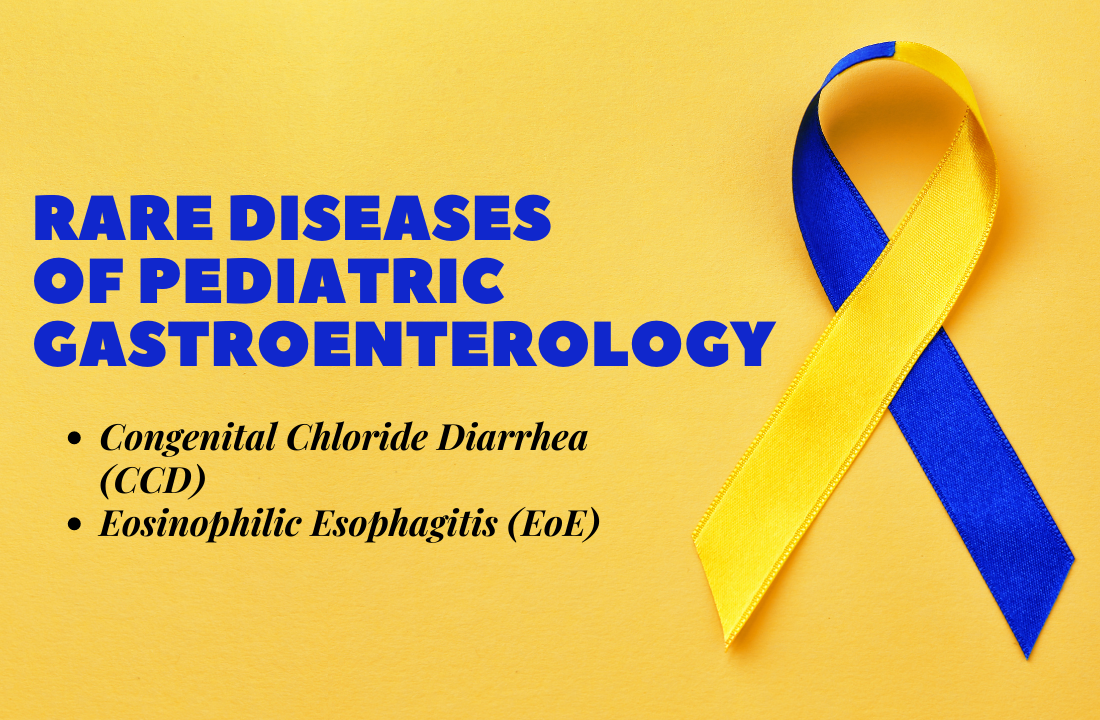Rare Diseases of Pediatric Gastroenterology: CCD & EoE
One rare disease of pediatric gastroenterology is called congenital chloride diarrhea (CCD). This disease is characterized by severe, life-threatening diarrhea that begins shortly after birth and persists throughout the child’s life. CCD is caused by a genetic mutation that affects the transport of chloride ions across the intestinal lining, leading to a loss of water and electrolytes from the body.
CCD is extremely rare, affecting only one in every 200,000 to 300,000 births. It is typically diagnosed shortly after birth, as affected infants will have frequent, watery diarrhea and failure to thrive. The diarrhea is often so severe that it can lead to dehydration,
Treatment for CCD involves replacing the lost electrolytes and fluids through intravenous hydration and oral rehydration solutions. In addition, affected individuals may require a specialized diet that is high in salt and other electrolytes, as well as regular monitoring of their fluid and electrolyte levels.
While there is no cure for CCD, early and aggressive treatment can help to manage the symptoms and prevent complications. With proper care, many individuals with CCD are able to live long, relatively healthy lives.
Another rare disease of pediatric gastroenterology is called eosinophilic esophagitis (EoE). This disease is characterized by inflammation of the esophagus that is caused by a buildup of a type of white blood cell called eosinophils. The inflammation can lead to difficulty swallowing, chest pain, and other symptoms.
EoE is relatively rare, affecting approximately one in every 2,000 people. It is typically diagnosed in childhood or adolescence, although it can occur in adults as well. The exact cause of EoE is not known, but it is thought to be related to an allergic or immune response to certain foods or environmental triggers.
Treatment for EoE typically involves identifying and avoiding the triggers that are causing the inflammation, such as certain foods or allergens. In addition, individuals with EoE may require medication to reduce the inflammation and manage symptoms. In some cases, a special diet may be recommended, such as an elimination diet or a formula-only diet.
While EoE can be a challenging condition to manage, with proper treatment, many individuals are able to achieve good symptom control and maintain a good quality of life. Research into the underlying causes of EoE is ongoing, and new treatments are being developed to help improve outcomes for individuals with this condition.
In conclusion, rare diseases of pediatric gastroenterology, such as CCD and EoE, can be challenging conditions to manage. However, with early diagnosis and proper treatment, many individuals with these conditions are able to live relatively healthy lives. Ongoing research into these conditions is important for developing new treatments and improving outcomes for affected individuals. electrolyte imbalances, and other complications.

